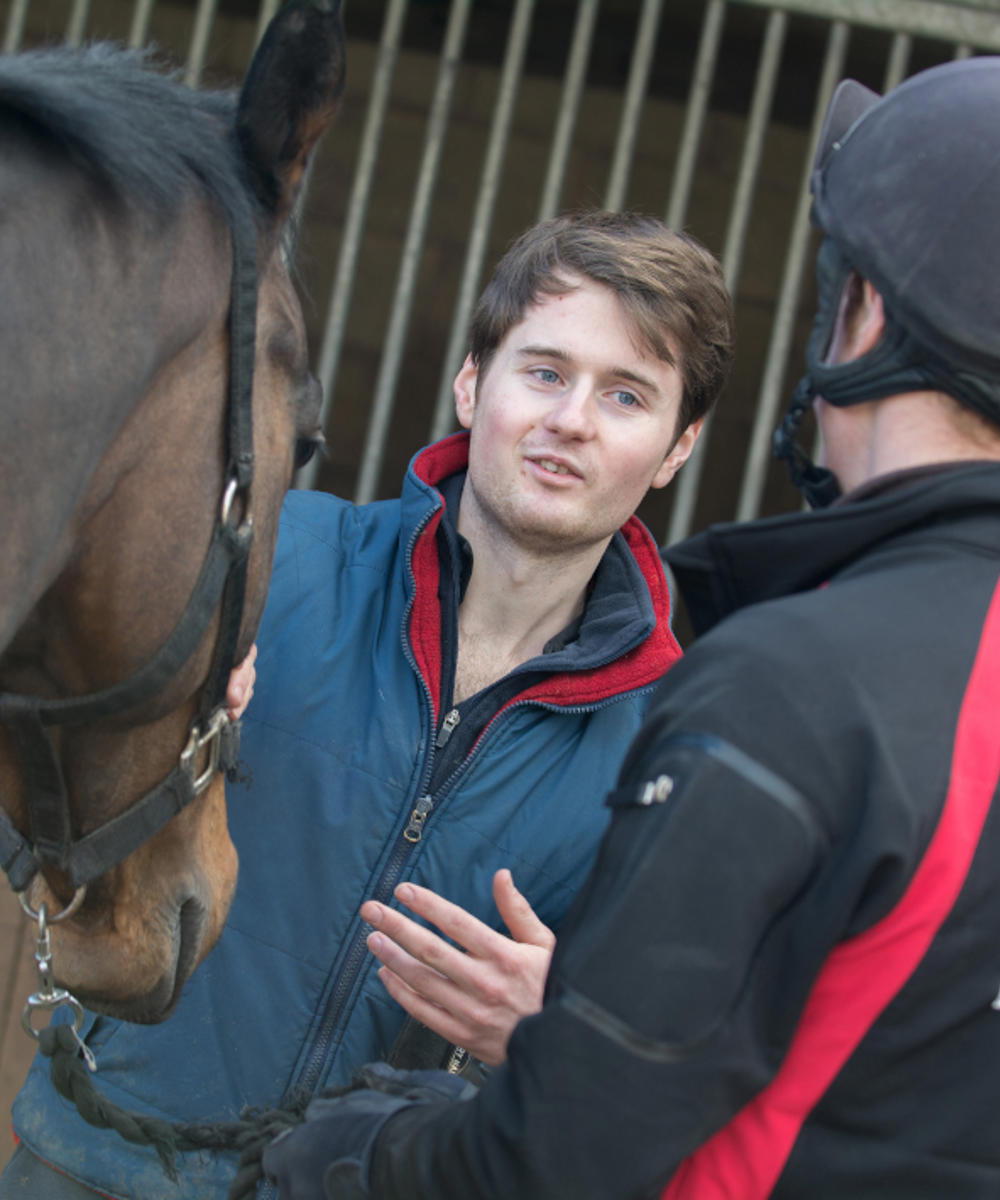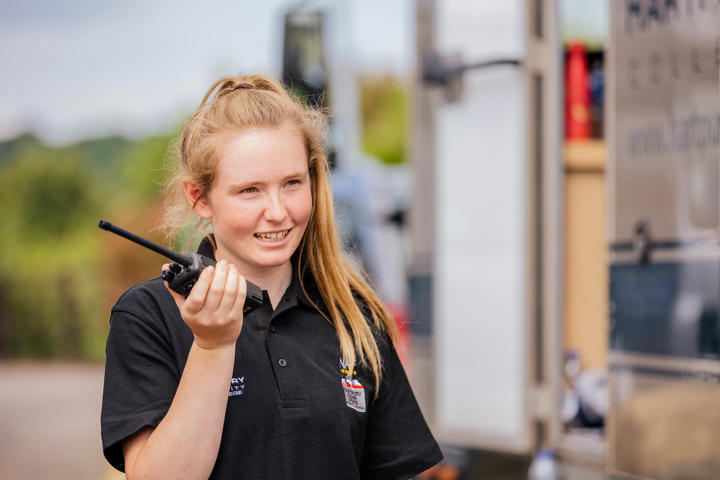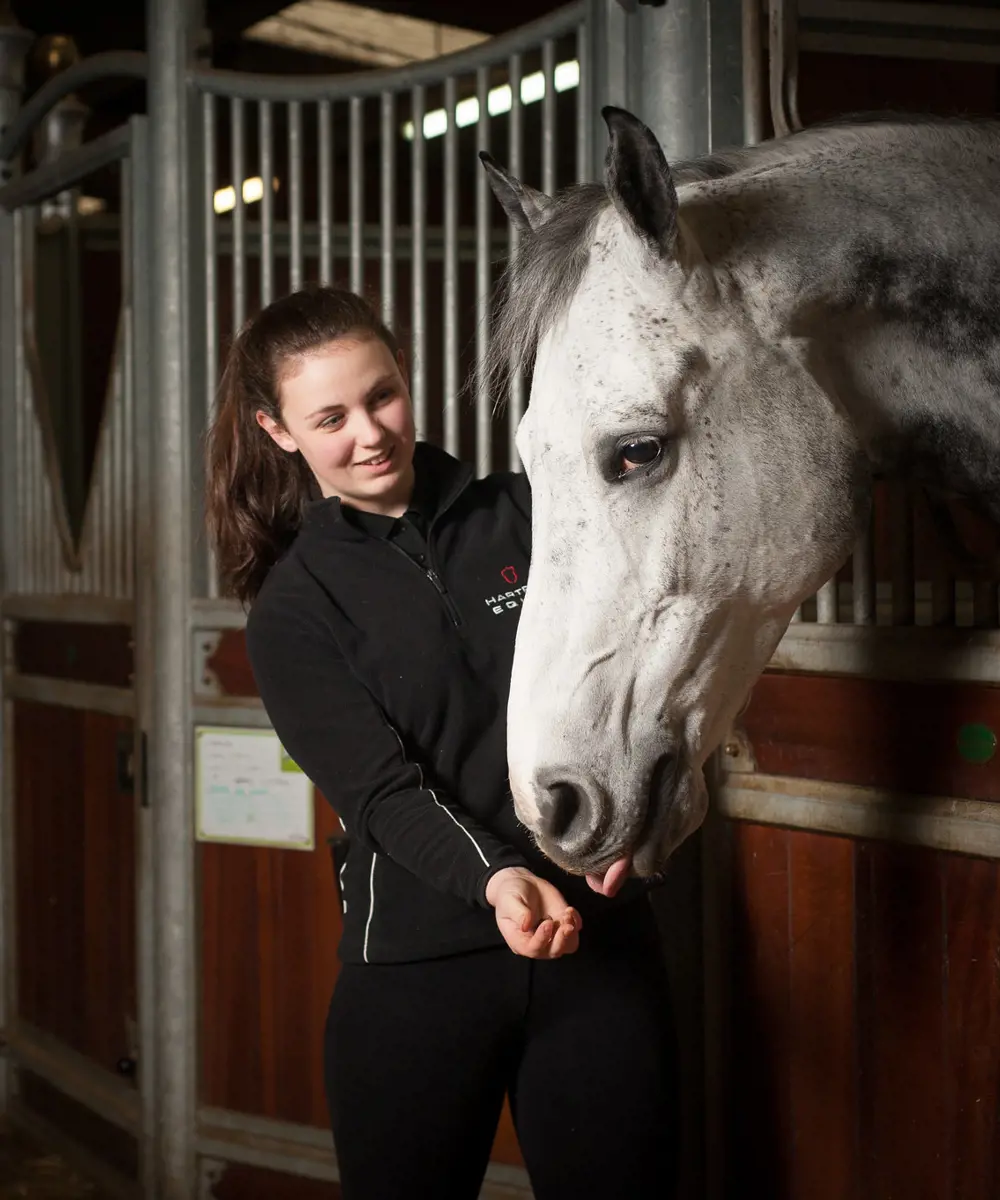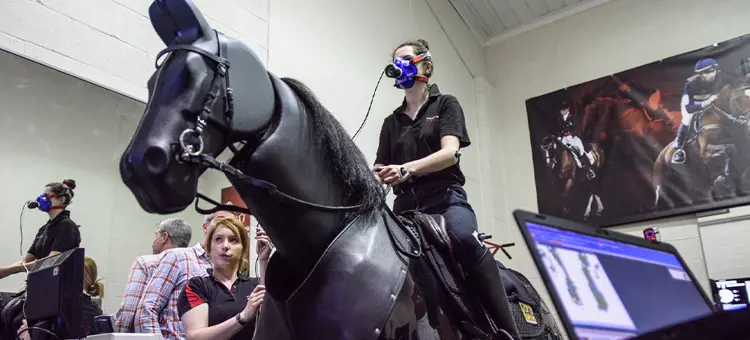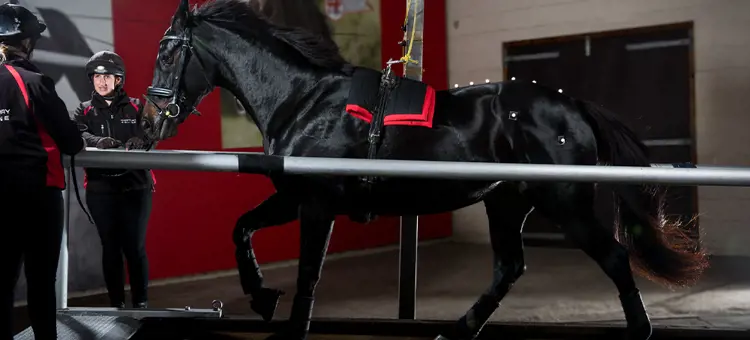Course information
We’ll support you to adopt an innovative and scientific mind-set, building both specialist and transferable skills to help you stand out when you graduate. Alongside developing equine-specific expertise, you’ll refine entrepreneurial and leadership skills. Work placements will enable you to build a successful career while improving the wider industry.
Graduate opportunities are diverse and could include working for equine charities and welfare organisations or with individuals to improve horse-rider relationships. Graduates of this course will play a vital role in education and implementation of best practice.
- UCAS | A typical offer for this course is 112 UCAS tariff points or equivalent.
- GCSE | A minimum of five GCSEs at grade 9 to 4, (or A* to C grades if relevant) or equivalent, to include English Language and Mathematics.
- A-level | Typical offer is BBC or equivalent. This must include a minimum of two A-levels.
- Vocational Award | Typical offer is a DMM in an Extended Diploma in a relevant subject.
- Access | Typical offer is 112 UCAS tariff points in an Access to Higher Education Diploma.
- IB | Typical offer is 112 UCAS tariff points in an IB Diploma, to include a minimum of two Highers at H3 or above, including one in Biology.
This must also include Maths and English Language at a minimum of Standard Level S3 if equivalent GCSEs have not been obtained.
- Scottish Highers | Typical offer is 112 UCAS tariff points in Scottish Highers. This must include a minimum of one Advanced Higher and one Higher.
- Irish Leaving Certificate | Typical offer is 112 UCAS tariff points in the Irish Leaving Certificate. This must include a minimum of two Highers. This must also include Maths and English Language at a minimum of Ordinary Level.
- OCR Cambridge Technical | Typical offer is a DMM in a Cambridge Technical Extended Diploma in a relevant subject.
- T Level | Typical offer is Merit in you T Level overall grade in a relevant subject.
- The minimum academic entry requirement for this programme is 80 UCAS tariff or equivalent providing this is combined with relevant experience.
We welcome students with equivalent qualifications. Please contact us to discuss.
We may interview mature applicants and those with non-traditional qualifications to ensure this is the right course for you.
Previous learning towards a university-level qualification or relevant work experience may count as credit for this course.
Your support network
You'll benefit from a strong support network from day one to be the best you can be. This will range from your personal tutor and specialist academic support team (our Achievement and Success Centre) to dedicated wellbeing and employability (Innovation, Careers and Enterprise) centres.
Academic support
You’ll have your own personal tutor while you’re here who will support you to succeed in your studies. You’ll also have access to our academic and wellbeing support teams who run regular workshops and one-to-one sessions on campus and online.
Alongside this, we have a comprehensive bank of online study skills resources to help you make the most of your qualification.
Your learning experiences
You'll experience a range of teaching methods to strengthen your digestion of topics, including lectures, workshops and practical sessions, as well as supported work placement learning as part of many courses.
Your career
Each year of your course will be made up of two semesters, within which you’ll study compulsory and optional modules on different industry-focused topics, enabling you to develop your own unique portfolio of knowledge, skills and experience, ready for your career. The course is taught in English.
Course information
Overview
We’ll support you to adopt an innovative and scientific mind-set, building both specialist and transferable skills to help you stand out when you graduate. Alongside developing equine-specific expertise, you’ll refine entrepreneurial and leadership skills. Work placements will enable you to build a successful career while improving the wider industry.
Graduate opportunities are diverse and could include working for equine charities and welfare organisations or with individuals to improve horse-rider relationships. Graduates of this course will play a vital role in education and implementation of best practice.
Entry requirements
- UCAS | A typical offer for this course is 112 UCAS tariff points or equivalent.
- GCSE | A minimum of five GCSEs at grade 9 to 4, (or A* to C grades if relevant) or equivalent, to include English Language and Mathematics.
- A-level | Typical offer is BBC or equivalent. This must include a minimum of two A-levels.
- Vocational Award | Typical offer is a DMM in an Extended Diploma in a relevant subject.
- Access | Typical offer is 112 UCAS tariff points in an Access to Higher Education Diploma.
- IB | Typical offer is 112 UCAS tariff points in an IB Diploma, to include a minimum of two Highers at H3 or above, including one in Biology.
This must also include Maths and English Language at a minimum of Standard Level S3 if equivalent GCSEs have not been obtained.
- Scottish Highers | Typical offer is 112 UCAS tariff points in Scottish Highers. This must include a minimum of one Advanced Higher and one Higher.
- Irish Leaving Certificate | Typical offer is 112 UCAS tariff points in the Irish Leaving Certificate. This must include a minimum of two Highers. This must also include Maths and English Language at a minimum of Ordinary Level.
- OCR Cambridge Technical | Typical offer is a DMM in a Cambridge Technical Extended Diploma in a relevant subject.
- T Level | Typical offer is Merit in you T Level overall grade in a relevant subject.
- The minimum academic entry requirement for this programme is 80 UCAS tariff or equivalent providing this is combined with relevant experience.
We welcome students with equivalent qualifications. Please contact us to discuss.
We may interview mature applicants and those with non-traditional qualifications to ensure this is the right course for you.
Previous learning towards a university-level qualification or relevant work experience may count as credit for this course.
Employability
Your career
How you'll study
Your support network
You'll benefit from a strong support network from day one to be the best you can be. This will range from your personal tutor and specialist academic support team (our Achievement and Success Centre) to dedicated wellbeing and employability (Innovation, Careers and Enterprise) centres.
Academic support
You’ll have your own personal tutor while you’re here who will support you to succeed in your studies. You’ll also have access to our academic and wellbeing support teams who run regular workshops and one-to-one sessions on campus and online.
Alongside this, we have a comprehensive bank of online study skills resources to help you make the most of your qualification.
Your learning experiences
You'll experience a range of teaching methods to strengthen your digestion of topics, including lectures, workshops and practical sessions, as well as supported work placement learning as part of many courses.
Your career
Each year of your course will be made up of two semesters, within which you’ll study compulsory and optional modules on different industry-focused topics, enabling you to develop your own unique portfolio of knowledge, skills and experience, ready for your career. The course is taught in English.
Modules
What you'll study
On this course, you'll cover a range of fundamental behaviour and welfare topics through a combination of compulsory and optional modules, which you'll be able to choose from to suit your interests and career goals.
Compulsory topics will include management of equine wellbeing, equine learning and cognition, and measurements of equine behaviour.
Optional modules change each year in line with student, industry and research demands - you'll find recent topics studied below. You can attend introductory sessions for optional modules before deciding which ones to study.
Module credits
On successful completion of your modules you’ll gain academic credit that accumulates towards your award. The marks you gain in your second and third years may contribute towards your final degree classification.
You’ll focus on key topics relating to equine learning and welfare to gain knowledge and fundamental study skills that underpin your course and equip you to study at higher levels. You'll also begin to explore human behaviours and interactions to gain skills for influencing future change in equitation science, training and beyond.
Compulsory Modules
The module aims to give an introduction to evidence-based learning principles for horses and the impact of environmental effects on learning.
An introduction to learning theory and human behaviour in relation to developing an understanding of reflection of self and how humans interact and influence others.
Learn about the biological systems of the horse, how they interact, and how they can be managed.
Generally, horses spend around an hour per day being trained or exercised. This module focuses on the principals of horse welfare and management for the other 23 hours.
Study of the basic principles of equine feeding and nutrition.
In this year, more in-depth topics will be explored, taking the fundamental knowledge learned in year one to explore the key factors and principles which underpin behaviour and welfare measurements in more detail. You'll also be supported to complete a work placement, enabling you to gain experience and make connections, ready for your career. Alongside compulsory modules, you’ll select from a range of optional modules to further develop your specialist expertise.
Compulsory Modules
Use of behavioural, physiological and physical measures of welfare and welfare assessment in different contexts.
You'll be supported to complete a minimum of 150 hours of work experience during the year, which can be in a variety of equine focused establishments in the UK or abroad.
Equine Performance
Understand how performance horses are exercised and trained to meet specific demands of various disciplines.
This module further develops the understanding of learning theory, attachment theory, emotions and learning in relation to evidence-based training of horses.
Optional Modules
Explore the operational aspects of event management and the customer experience.
The study of the horse’s digestive system, their required nutrient intake for different activities, and how to manage the horse’s diet.
A chance to review an approved topic area in line with your programme of study and develop your independent working skills.
Either International Academic Study Portfolio OR International Academic Study Project
International Academic Study Portfolio
A reflection upon a period of international study.
International Academic Study Project
A reflection upon a period of international study.
You will engage in a programme relevant study trip which will provide a context for you to synthesise content from across your programme of study and make applications and inferences to this real world setting, while expanding your horizons.
An integrated placement year before your final year allows you to put your knowledge and skills into practice and gain valuable industry experience. Many students get their graduate careers with the organisation with which they completed their work placement.
Your final year allows you to focus on areas of particular interest to you, in line with your career aspirations. One module is your dissertation, a substantial research project that enables you to plan, implement and report on a specialist topic of your choice.
In addition, you'll be exposed to contemporary challenges and developments in the field of equine behaviour, gaining an insight into the direction of emerging research. Optional modules will support you to develop entrepreneurial and leadership skills, including negotiation and conflict resolution, preparing you to drive changes in the industry to improve equine training, behaviour management and welfare.
Compulsory Modules
Partake in independent research and analysis in a related area of your choice.
This module will enable you to undertake a critical review in a chosen area and design a pilot study utilising behavioural, physiological and/or physical measures in order to advance the current evidence base in relation to current management practices.
Students will build their knowledge of ethical philosophy and key equine welfare contributors/research to enable discussion of contemporary industry issues.
Exploring the structure, diversity and culture of organisations in relation to leadership and change management.
Optional Modules
Evolution of feeding strategies to support athletic performance in the horse, whilst maintaining good health.
Gain strategies and techniques to develop communications skills in order to influence, sell and negotiate within the equine industry.
Explore and analyse current business practice within the global equestrian industry in relation to long term sustainability.
A chance to critically review an approved topic of your choice linked to the programme aims.
Practically apply theory and knowledge of the equine charity sector to a real-life volunteering environment, proposing methods of raising awareness of their work as an organisation and reflecting on personal development during time spent in industry.
Modules
Overview
What you'll study
On this course, you'll cover a range of fundamental behaviour and welfare topics through a combination of compulsory and optional modules, which you'll be able to choose from to suit your interests and career goals.
Compulsory topics will include management of equine wellbeing, equine learning and cognition, and measurements of equine behaviour.
Optional modules change each year in line with student, industry and research demands - you'll find recent topics studied below. You can attend introductory sessions for optional modules before deciding which ones to study.
Module credits
On successful completion of your modules you’ll gain academic credit that accumulates towards your award. The marks you gain in your second and third years may contribute towards your final degree classification.
Level four (year one)
You’ll focus on key topics relating to equine learning and welfare to gain knowledge and fundamental study skills that underpin your course and equip you to study at higher levels. You'll also begin to explore human behaviours and interactions to gain skills for influencing future change in equitation science, training and beyond.
Compulsory Modules
The module aims to give an introduction to evidence-based learning principles for horses and the impact of environmental effects on learning.
An introduction to learning theory and human behaviour in relation to developing an understanding of reflection of self and how humans interact and influence others.
Learn about the biological systems of the horse, how they interact, and how they can be managed.
Generally, horses spend around an hour per day being trained or exercised. This module focuses on the principals of horse welfare and management for the other 23 hours.
Study of the basic principles of equine feeding and nutrition.
Level five (year two)
In this year, more in-depth topics will be explored, taking the fundamental knowledge learned in year one to explore the key factors and principles which underpin behaviour and welfare measurements in more detail. You'll also be supported to complete a work placement, enabling you to gain experience and make connections, ready for your career. Alongside compulsory modules, you’ll select from a range of optional modules to further develop your specialist expertise.
Compulsory Modules
Use of behavioural, physiological and physical measures of welfare and welfare assessment in different contexts.
You'll be supported to complete a minimum of 150 hours of work experience during the year, which can be in a variety of equine focused establishments in the UK or abroad.
Equine Performance
Understand how performance horses are exercised and trained to meet specific demands of various disciplines.
This module further develops the understanding of learning theory, attachment theory, emotions and learning in relation to evidence-based training of horses.
Optional Modules
Explore the operational aspects of event management and the customer experience.
The study of the horse’s digestive system, their required nutrient intake for different activities, and how to manage the horse’s diet.
A chance to review an approved topic area in line with your programme of study and develop your independent working skills.
Either International Academic Study Portfolio OR International Academic Study Project
International Academic Study Portfolio
A reflection upon a period of international study.
International Academic Study Project
A reflection upon a period of international study.
You will engage in a programme relevant study trip which will provide a context for you to synthesise content from across your programme of study and make applications and inferences to this real world setting, while expanding your horizons.
Integrated placement year (optional)
An integrated placement year before your final year allows you to put your knowledge and skills into practice and gain valuable industry experience. Many students get their graduate careers with the organisation with which they completed their work placement.
Level Six (final year)
Your final year allows you to focus on areas of particular interest to you, in line with your career aspirations. One module is your dissertation, a substantial research project that enables you to plan, implement and report on a specialist topic of your choice.
In addition, you'll be exposed to contemporary challenges and developments in the field of equine behaviour, gaining an insight into the direction of emerging research. Optional modules will support you to develop entrepreneurial and leadership skills, including negotiation and conflict resolution, preparing you to drive changes in the industry to improve equine training, behaviour management and welfare.
Compulsory Modules
Partake in independent research and analysis in a related area of your choice.
This module will enable you to undertake a critical review in a chosen area and design a pilot study utilising behavioural, physiological and/or physical measures in order to advance the current evidence base in relation to current management practices.
Students will build their knowledge of ethical philosophy and key equine welfare contributors/research to enable discussion of contemporary industry issues.
Exploring the structure, diversity and culture of organisations in relation to leadership and change management.
Optional Modules
Evolution of feeding strategies to support athletic performance in the horse, whilst maintaining good health.
Gain strategies and techniques to develop communications skills in order to influence, sell and negotiate within the equine industry.
Explore and analyse current business practice within the global equestrian industry in relation to long term sustainability.
A chance to critically review an approved topic of your choice linked to the programme aims.
Practically apply theory and knowledge of the equine charity sector to a real-life volunteering environment, proposing methods of raising awareness of their work as an organisation and reflecting on personal development during time spent in industry.
The modules contain a mixture of scheduled learning – lectures, workshops and practical sessions – alongside independent learning - students are expected to dedicate at least two to three hours of independent study per contact hour. Your course will also include work placement learning as part of some modules.
The course is taught in English.
This programme is currently undergoing consultation but it is estimated that the course will comprise of the following teaching modes.
| Year | Contact learning | Independent learning | Placement learning |
| Level four (year one) | 24% | 76% | 0% |
| Level five (year two) | 19% | 69% | 12% |
| Placement year (optional) | 1% | 19% | 80% |
| Level six (final year) | 17% | 83% | 0% |
Assessments take place through a mixture of written exams, practical exams and written assignments. Many of the modules will be marked based on a mixture of assessment types, whilst others will be based solely on one type of assessment. Feedback will be given informally during scheduled learning and formally following each assessment.
This programme is currently undergoing consultation but it is estimated that the course will comprise of the following assessment methods.
| Year | Written exam | Coursework | Practical exam |
| Level four (year one) | 19% | 33% | 48% |
| Level five (year two) | 8% | 58% | 34% |
| Placement year (optional) | 0% | 100% | 0% |
| Level six (final year) | 0% | 64% | 36% |
This programme is taught over two semesters, normally consisting of 12 weeks of scheduled teaching and then assessment weeks.
- Scheduled teaching takes place between 8:30 to 20:30 Monday to Friday
- Wednesday afternoons are normally reserved for sports and cultural activities
- Work placements may entail different days and hours
- Part-time students may need to attend learning activities five days each week, depending on modules selected
- Timetables are available during enrolment week
For further details about this course, including the programme specification and module descriptions, please visit our document library.
If you’re playing sport competitively, or you have the talent and drive to do so, you may want to join one of our Sports Academies. Over 200 international athletes have developed their talents with us over the past 10 years. You could be our next success story. We're a semi-professional sports environment offering world-class facilities and professional coaching and support services.
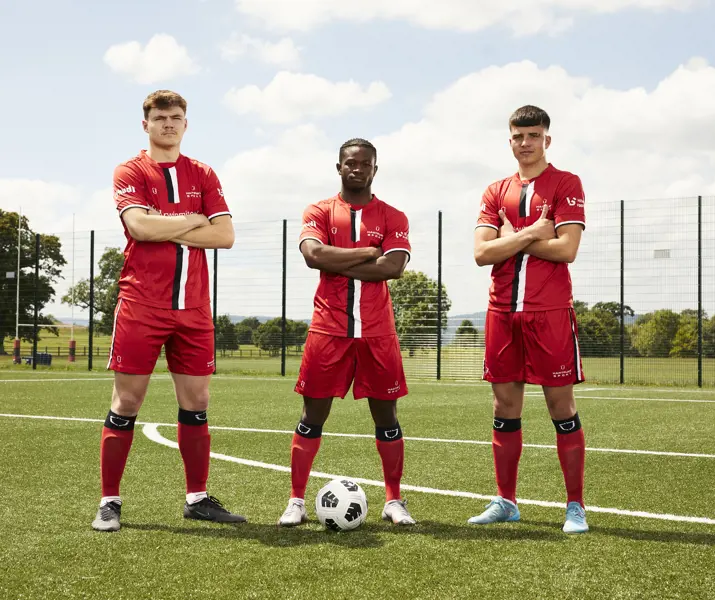
Settle into an accommodation option to suit your taste and budget – at Hartpury University, undergraduate students can choose to live on-campus surrounded by Gloucestershire’s beautiful countryside or off-campus in the heart of Gloucester City centre. Enjoy the best of both worlds.
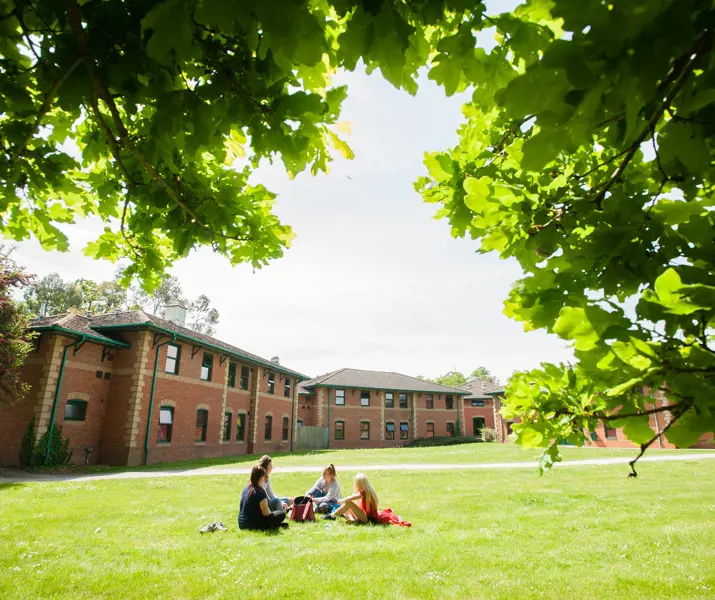
We can help you understand how it all works, and what you need to do next. Find out everything you need to know about tuition fees, student loans and bursaries and scholarships. In 2021/22, we provided assistance to over 1/3 of our students through bursaries, scholarships and grants, totalling a little under £1million.


TEF Gold
Our undergraduate provision has been awarded Teaching Excellence Framework (TEF) Gold in all aspects - Overall, Student Experience, and Student Outcomes.
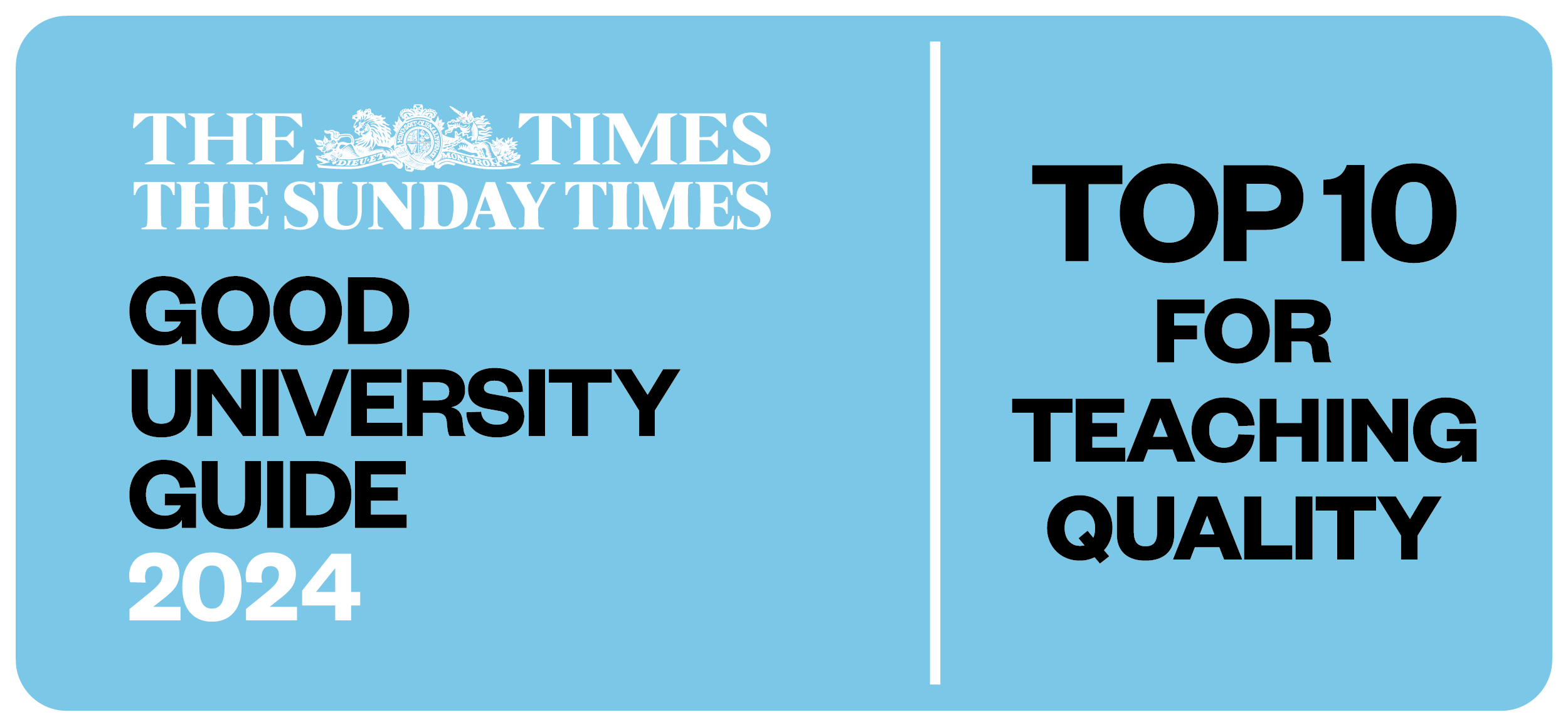
Teaching quality
Ranked in the top 10 universities for teaching quality (The Times and The Sunday Times Good University Guide, 2024).
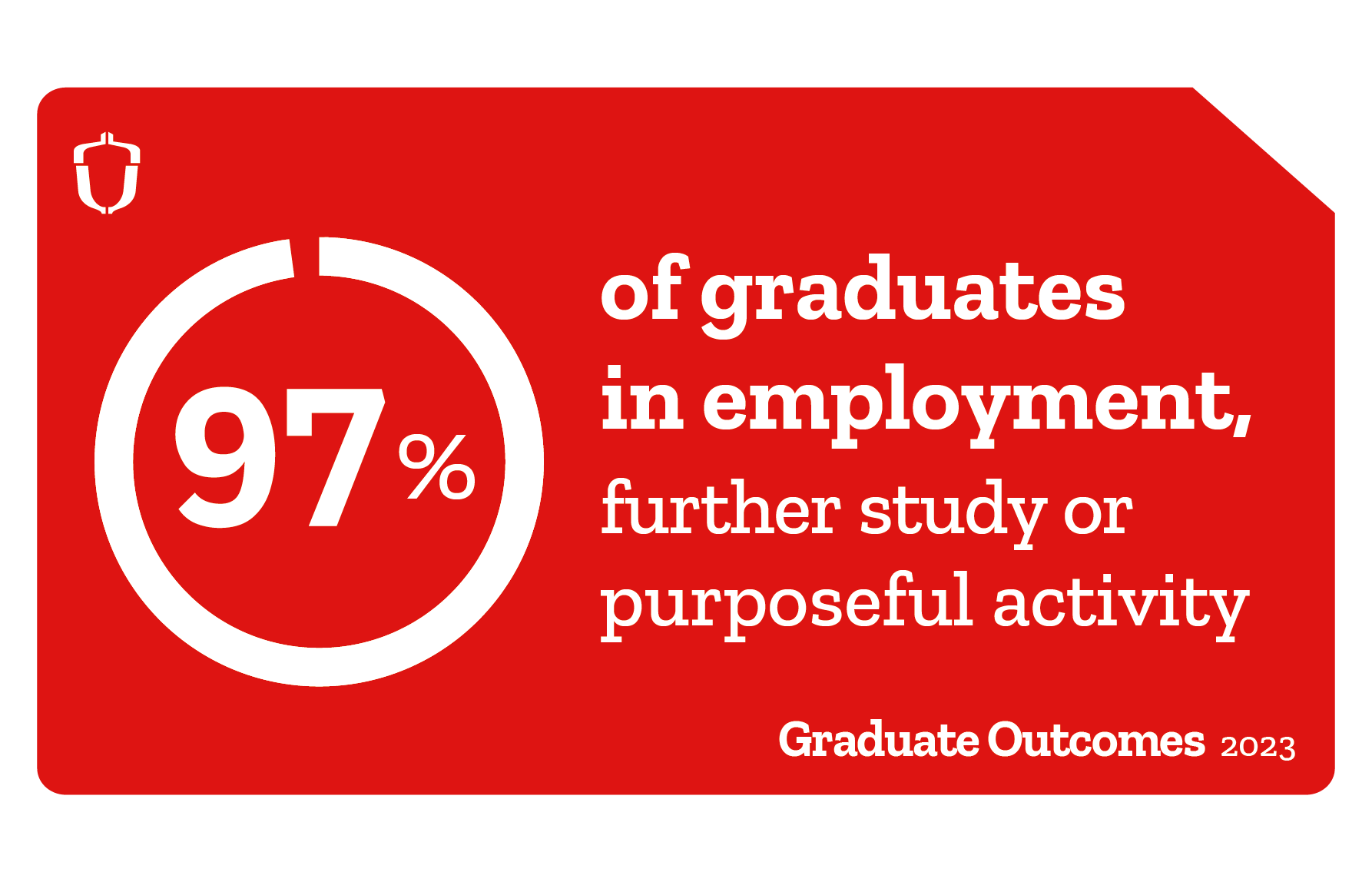
Graduate employability
97% of our graduates are in employment, further study or other purposeful activity (Graduate Outcomes, 2023).
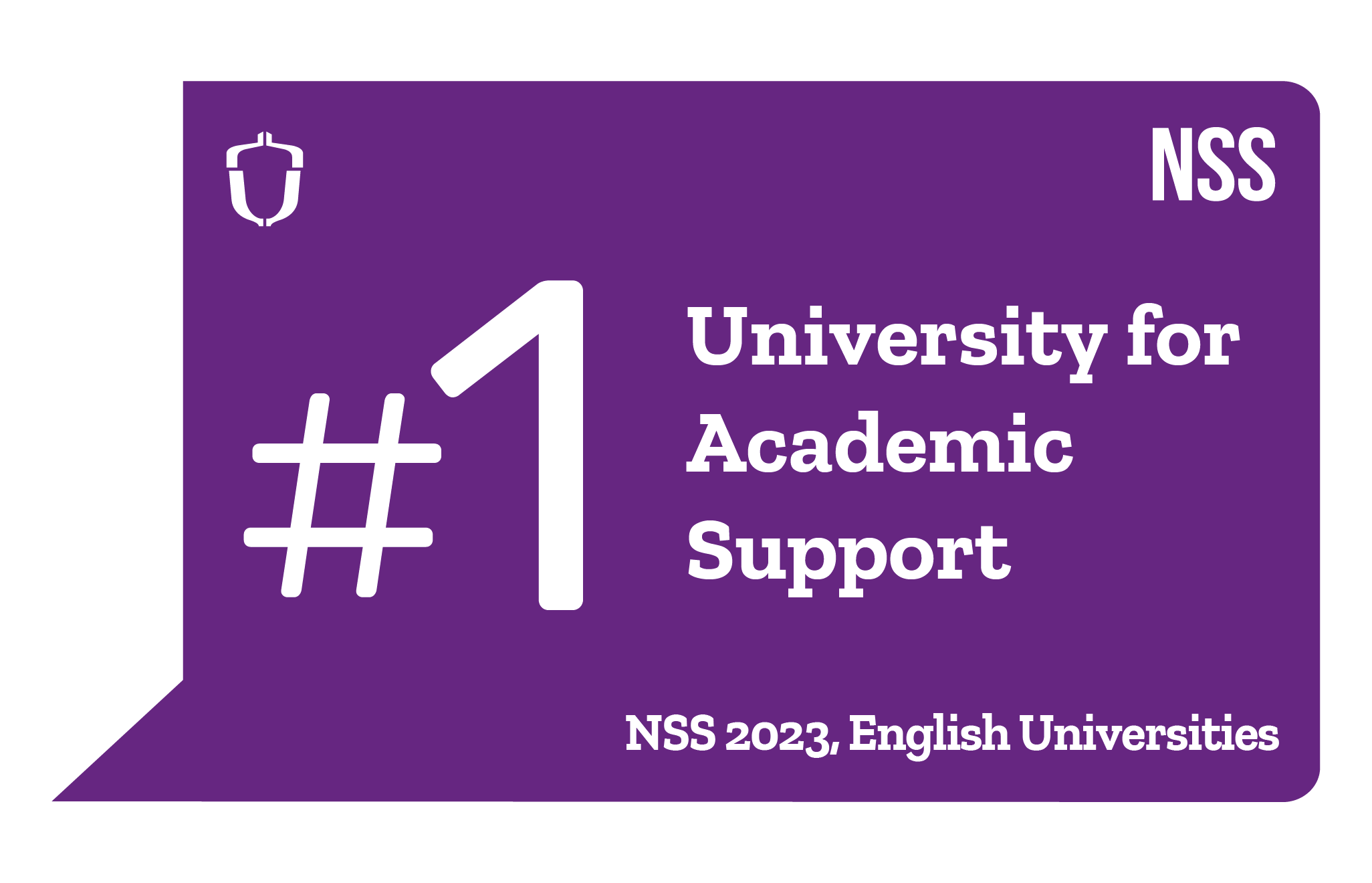
Academic support
We’ve been named as the top university in England for academic support (National Student Survey, 2023).
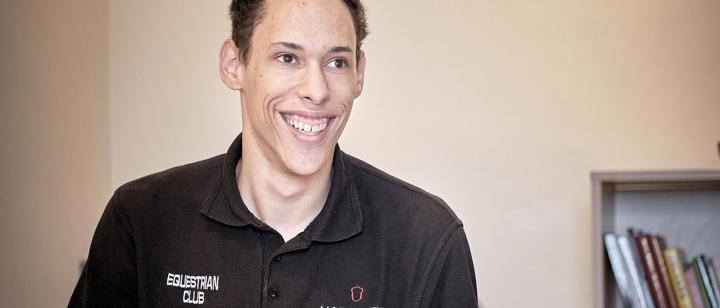
Important information
Every effort has been made to ensure the accuracy of our published course information, however our programmes are reviewed and developed regularly. Changes or cancellation of courses may be necessary to ensure alignment with emerging employment areas, to comply with accrediting body requirements, revisions to subject benchmark statements or as a result of student feedback. We reserve the right to make necessary changes and will notify all offer-holders of changes as and when they occur.

